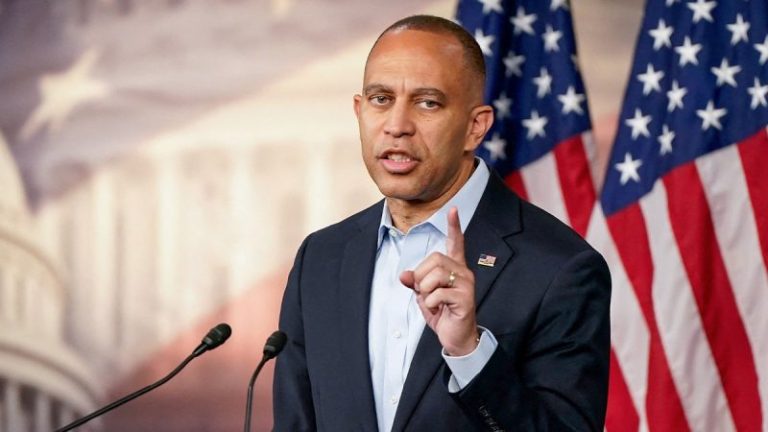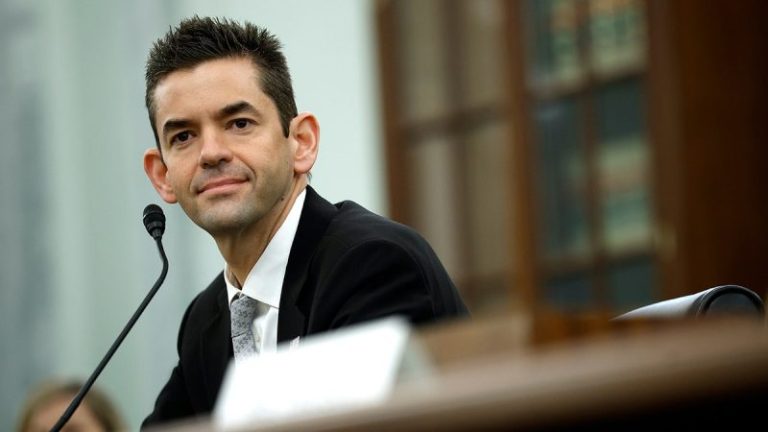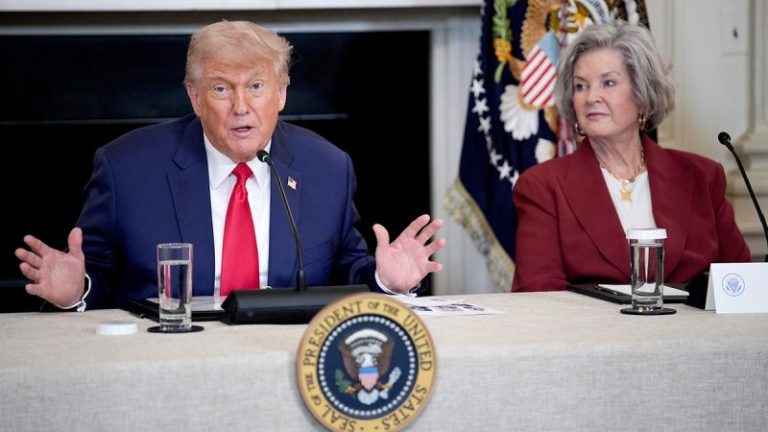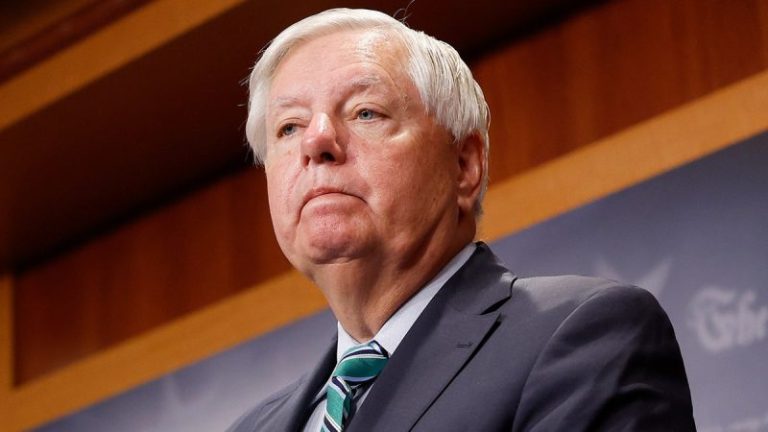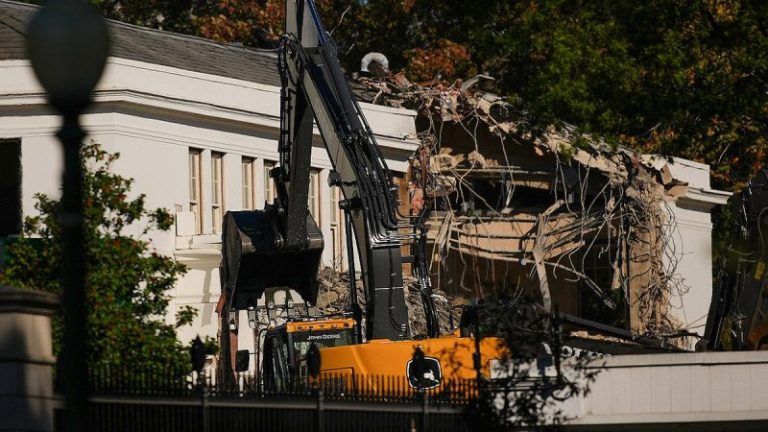President Donald Trump isn’t offended by White House chief of staff Susie Wiles’ comments in Vanity Fair describing him as someone with ‘an alcoholic’s personality.’
On Tuesday, Vanity Fair published the first part of a two-part story about Wiles and the second Trump administration — which White House press secretary Karoline Leavitt claimed featured comments that were ‘wildly’ taken out of context.
In response, Trump and his allies have come to dish out praise for Wiles, following the publication of a story where Wiles issued some unsavory remarks about Trump and others in his orbit. Hours after the Vanity Fair story was published, Trump told the New York Post that he wasn’t insulted by Wiles’ description of his personality.
‘No, she meant that I’m — you see, I don’t drink alcohol. So everybody knows that — but I’ve often said that if I did, I’d have a very good chance of being an alcoholic. I have said that many times about myself, I do. It’s a very possessive personality,’ Trump told the Post.
‘I’ve said that many times about myself. I’m fortunate I’m not a drinker. If I did, I could very well, because I’ve said that — what’s the word? Not possessive — possessive and addictive type personality,’ Trump said. ‘Oh, I’ve said it many times, many times before.’
The White House referred Fox News Digital to the Post’s reporting when asked for comment.
Included in the Vanity Fair story were several quotes from Wiles describing others within Trump’s orbit in an unflattering manner. In addition to the remarks about Trump, Wiles was quoted claiming that Vice President JD Vance has been a ‘conspiracy theorist for a decade,’ and that Attorney General Pam Bondi ‘completely whiffed’ how she handled the release of documents pertaining to the late financier and convicted sex offender Jeffrey Epstein.
Likewise, she described the Office of Management and Budget Director Russell Vought as ‘a right-wing absolute zealot,’ and claimed that SpaceX and Tesla CEO Elon Musk, who headed up the Department of Government Efficiency (DOGE), was an ‘odd duck’ and an ‘avowed ketamine (user).’
Even so, Wiles was also quoted praising Trump’s Cabinet, claiming that they are ‘a world-class Cabinet, better than anything I could have conceived of.’
In response to the story, Wiles claimed that the story was a ‘disingenuously framed hit piece on me and the finest President, White House staff, and Cabinet in history.’
‘Significant context was disregarded and much of what I, and others, said about the team and the President was left out of the story,’ Wiles said in a post on X Tuesday. ‘I assume, after reading it, that this was done to paint an overwhelmingly chaotic and negative narrative about the President and our team.’
Meanwhile, other members of the Trump administration also swiftly came to Wiles’ defense — including some of those who were mentioned in an unfavorable way.
Vance dismissed Wiles’ comments during an event in Allentown, Pennsylvania, where he claimed that he and Wiles have privately joked that the vice president is a conspiracy theorist.
‘Sometimes I am a conspiracy theorist, but I only believe in the conspiracy theories that are true,’ Vance said.
Bondi also issued some praise for Wiles, and asserted that ‘any attempt to divide this administration will fail.’
‘Any attempt to undermine and downplay President Trump’s monumental achievements will fail,’ Bondi said in a post on X Tuesday. ‘We are family. We are united.’
Vought, who also served as director of the Office of Management and Budget during Trump’s first term, said that Wiles is an ‘exceptional’ chief of staff and that this is the most seamless era he’s experienced in his two terms working for Trump.
‘In my portfolio, she is always an ally in helping me deliver for the president,’ Vought said about Wiles. ‘And this hit piece will not slow us down.’
Meanwhile, Secretary of War Pete Hegseth claimed the piece was a playbook from the left to ‘trash & smear our best & most effective people.’
‘They do it to President Trump daily — and now to Chief Susie Wiles. Susie is the most TRUSTED, most PROFESSIONAL & most EFFECTIVE Chief of Staff of my lifetime,’ Hegseth said in a post on X Tuesday. ‘Absolutely nobody better!’
United Nations Ambassador Mike Waltz, who previously served as the national security advisor at the White House, said he’d known Wiles for over a decade and that she ‘exemplifies integrity & dedication to our incredible President and country.’
‘The Queen of Florida politics – the architect of multiple successful governor’s and Presidential campaigns – she’s calm under fire, forthright, & results focused. Period,’ Waltz said in a post on X on Tuesday.
Treasury Secretary Scott Bessent also weighed in, describing Wiles as ‘the single most effective operator whom I have ever met.’
‘Susie is an exceptional Chief of Staff, and her tireless dedication, loyalty, and commitment to the President are beyond reproach,’ Bessent said in a post on X on Tuesday. ‘Powerful leadership often works quietly – never seeking credit and always relentlessly driving results. Our Chief exemplifies that.’
‘No one is more insightful, effective, and loyal,’ Bessent said. ‘She never loses sight of the big picture while managing the daily agenda.’
Bessent also challenged Vanity Fair’s portrayal of the Trump administration in the piece, claiming that the faulty characterization is ‘precisely why the insular chattering classes in America lose their minds as we notch victory after victory for the American people.’
Musk did not immediately respond to a request for comment from Fox News Digital.
Conde Nast, which owns Vanity Fair, did not immediately respond to a request for comment from Fox News Digital.
This post appeared first on FOX NEWS



